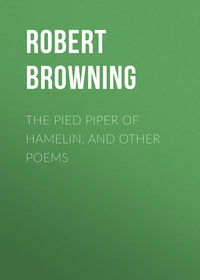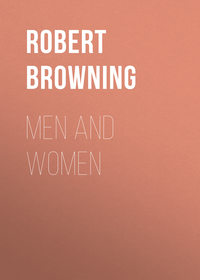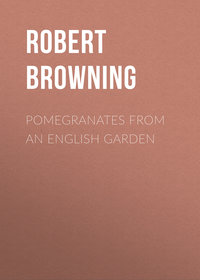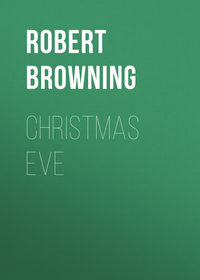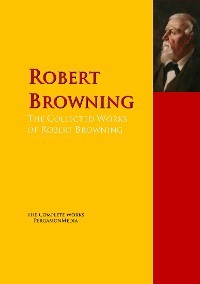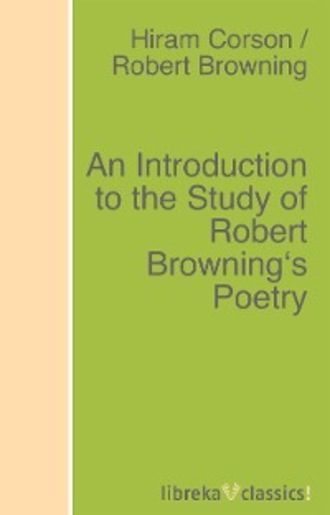
Полная версия
An Introduction to the Study of Robert Browning's Poetry
In the interval between Chaucer and Spenser, this life of the spirit is not distinctly marked in any of its authors, not excepting even Henry Howard, Earl of Surrey, whose sad fate gave a factitious interest to his writings. It is more noticeable in Thomas Sackville, Lord Buckhurst's `Induction to the Mirror for Magistrates', which, in the words of Hallam, "forms a link which unites the school of Chaucer and Lydgate to the `Faerie Queene'."
The Rev. James Byrne, of Trinity College, Dublin, in his lecture on `The Influence of National Character on English Literature', remarks of Spenser: "After that dark period which separated him from Chaucer, after all the desolation of the Wars of the Roses, and all the deep trials of the Reformation, he rose on England as if, to use an image of his own,
"That baptism of blood and fire through which England passed at the Reformation, raised both Protestant and Catholic to a newness of life. That mighty working of heart and mind with which the nation then heaved throughout, went through every man and woman, and tried what manner of spirits they were of. What a preparation was this for that period of our literature in which man, the great actor of the drama of life, was about to appear on the stage! It was to be expected that the drama should then start into life, and that human character should speak from the stage with a depth of life never known before; but who could have imagined Shakespeare?"
And what a new music burst upon the world in Spenser's verse! His noble stanza, so admirably adapted to pictorial effect, has since been used by some of the greatest poets of the literature, Thomson, Scott, Wordsworth, Byron, Keats, Shelley, and numerous others; but none of them, except in rare instances, have drawn the music out of it which Spenser drew.
Professor Goldwin Smith well remarks, in his article on Mark Pattison's Milton, "The great growths of poetry have coincided with the great bursts of national life, and the great bursts of national life have hitherto been generally periods of controversy and struggle. Art itself, in its highest forms, has been the expression of faith. We have now people who profess to cultivate art for its own sake; but they have hardly produced anything which the world accepts as great, though they have supplied some subjects for `Punch'."
Spenser who, of all the great English poets, is regarded by some critics as the most remote from real life, and the least reflecting his age, is, nevertheless, filled with the spirit of his age—its chivalric, romantic, patriotic, moral, and religious spirit. When he began to write, the nation had just passed through the fiery furnace of a religious persecution, and was rejoicing in its deliverance from the papistical rule of Mary. The devotion to the new queen with which it was inspired was grateful, generous, enthusiastic, and even romantic. This devotion Spenser's great poem everywhere reflects, and it has been justly pronounced to be the best exponent of the subtleties of that Calvinism which was the aristocratic form of Protestantism at that time in both France and England.
The renewed spiritual life which set in so strongly with Spenser, reached its springtide in Shakespeare. It was the secret of that sense of moral proportion which pervades his plays. Moral proportion cannot be secured through the laws of the ancients, or through any formulated theory of art. It was, I am assured, through his deep and sensitive spirit-life that Shakespeare felt the universal spirit and constitution of the world as fully, perhaps, as the human soul, in this life, is capable of feeling it. Through it he took cognizance of the workings of nature, and of the life of man, BY DIRECT ASSIMILATION OF THEIR HIDDEN PRINCIPLES,— principles which cannot be reached through an observation, by the natural intelligence, of the phenomenal. He thus became possessed of a knowledge, or rather wisdom, far beyond his conscious observation and objective experience.
Shakespeare may be regarded as the first and the last great artistic physiologist or natural historian of the passions; and he was this by virtue of the life of the spirit, which enabled him to reproduce sympathetically the whole range of human passion within himself. He was the first of the world's dramatists that exhibited the passions in their evolutions, and in their subtlest complications. And the moral proportion he preserved in exhibiting the complex and often wild play of the passions must have been largely due to the harmony of his soul with the constitution of things. What the Restoration dramatists regarded or understood as moral proportion, was not moral proportion at all, but a proportion fashioned according to merely conventional ideas of justice. Shakespeare's moral proportion appeared to them, in their low spiritual condition, a moral chaos, which they set about converting, in some of his great plays, into a cosmos; and a sad muss, if not a ridiculous muss, they made of it. Signal examples of this are the `rifacimenti' of the Tempest by Dryden and Davenant, the King Lear by Tate, and the Antony and Cleopatra (entitled `All for Love, or the World well Lost') by Dryden.
In Milton, though there is a noticeable, an even distinctly marked, reduction of the life of the spirit (in the sense in which I have been using these words) exhibited by Shakespeare, it is still very strong and efficient, and continues uninfluenced by the malign atmosphere around him the last fifteen years of his life, which were lived in the reign of Charles II. Within that period he wrote the `Paradise Lost', `Paradise Regained', and `Samson Agonistes'. "Milton," says Emerson, "was the stair or high table-land to let down the English genius from the summits of Shakespeare."
"These heights could not be maintained. They were followed by a meanness and a descent of the mind into lower levels; the loss of wings; no high speculation. Locke, to whom the meaning of ideas was unknown, became the type of philosophy, and his "understanding" the measure, in all nations, of the English intellect. His countrymen forsook the lofty sides of Parnassus, on which they had once walked with echoing steps, and disused the studies once so beloved; the powers of thought fell into neglect."
The highest powers of thought cannot be realized without the life of the spirit. It is this, as I have already said, which has been the glory of the greatest thinkers since the world began; not their intellects, but the co-operating, unconscious power IMMANENT in their intellects.
During the Restoration period, and later, spiritual life was at its very lowest ebb. I mean, spiritual life as exhibited in the poetic and dramatic literature of the time, whose poisoned fountain-head was the dissolute court of Charles II. All the slops of that court went into the drama, all the `sentina reipublicae', the bilge water of the ship of state. The dramatic writers of the time, to use the words of St. Paul in his letter to the Ephesians, "walked in the vanity of their mind; having the understanding darkened, being alienated from the life of God through the ignorance that was in them because of the blindness of their heart; who, being past feeling, gave themselves over unto lasciviousness, to work all uncleanness with greediness." The age, as Emerson says, had no live, distinct, actuating convictions. It was in even worse than a negative condition. As represented by its drama and poetry, it may almost be said to have repudiated the moral sentiment. A spiritual disease affected the upper classes, which continued down into the reign of the Georges. There appears to have been but little belief in the impulse which the heart imparts to the intellect, or that the latter draws greatness from the inspiration of the former. There was a time in the history of the Jews in which, it is recorded, "there was no open vision". It can be said, emphatically, that in the time of Charles II. there was no open vision. And yet that besotted, that spiritually dark age, which was afflicted with pneumatophobia, flattered itself that there had never been an age so flooded with light. The great age of Elizabeth (which designation I would apply to the period of fifty years or more, from 1575 to 1625, or somewhat later), in which the human faculties, in their whole range, both intellectual and spiritual, reached such a degree of expansion as they had never before reached in the history of the world,— that great age, I say, the age of Spenser, Sidney, Marlowe, Shakespeare, Bacon, Raleigh, Hooker, Ben Jonson, Beaumont, Fletcher, Chapman, Dekker, Ford, Herbert, Heywood, Massinger (and this list of great names might be continued),—that great age, I say, was regarded by the men of the Restoration period as barbarous in comparison with their own. But beneath all, still lay the restorative elements of the English character, which were to reassert themselves and usher in a new era of literary productiveness, the greatest since the Elizabethan age, and embodying the highest ideals of life to which the race has yet attained. We can account, to some extent, for this interregnum or spiritual life, but only to some extent. The brutal heartlessness and licentiousness of the court which the exiled Charles brought back with him, and the release from Puritan restraint, explain partly the state of things, or rather the degree to which the state of things was pushed.
In the middle of the eighteenth century, or somewhat earlier, the rise of the spiritual tide is distinctly observable. We see a reaction setting in against the soulless poetry which culminated in Alexander Pope, whose `Rape of the Lock' is the masterpiece of that poetry. It is, in fact, the most brilliant society-poem in the literature. De Quincey pronounces it to be, though somewhat extravagantly, "the most exquisite monument of playful fancy that universal literature offers." Bishop Warburton, one of the great critical authorities of the age, believed in the infallibility of Pope, if not of THE Pope.




